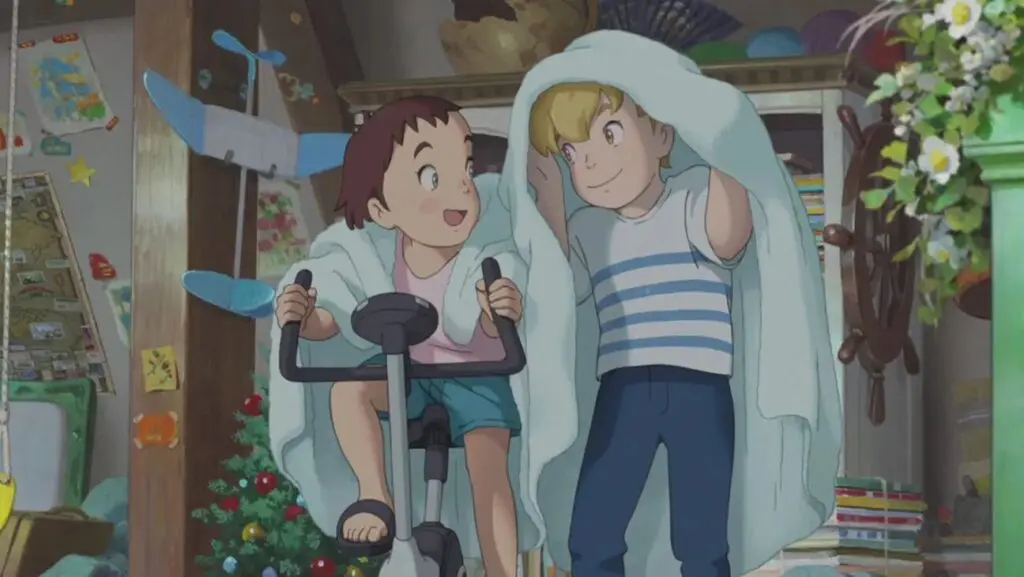Summary
Outstanding animation brings The Imaginary to life, exploring our resistance to growing up in a nostalgic and emotional way.
One thing I never had as a child was an imaginary friend, but I recall one night believing that Santa Claus was sneaking around the family home. My imagination was full throttle, so much so that I’m sure I saw a red radiant light as he moved from room to room and then sparkled in the night sky as he whooshed away in his sleigh to deliver presents to other children. A lot of what I imagined was probably my dad being a fun parent, knowing full well I was awake, so he supported my imagination.
But what struck me growing up is how an active imagination is tied to one’s knowledge of the world. The more one knows, the less one imagines. And before you know it, you are an adult, void of those overwhelming emotions you had when you were young. You cannot replicate it when you see the world for what it is.
The Imaginary, an anime movie from Studio Ponic (Mary and the Witch’s Flower, Modest Heroes) and an adaptation of an English fantasy novel, encapsulates the childhood experience to a degree worth being emotional about. Now a Netflix movie, the story follows a young girl, Amanda, who has a made-up friend called Rudger. They build beautiful imagined worlds together. One day, they face an ominous threat, and Rudger arrives at The Town of Imaginaries, where forgotten Imaginaries live and find purpose without their child. Rudger has to find his way back to Amanda while navigating the dark threat.
In some ways, The Imaginary reminds me fondly of Monsters, Inc. Both movies rely on the scarcity of a child’s innocence. An “Imaginary” can only exist if a child’s conscious and subconscious can conjure it. A monster can only scare a child from under the bed if they believe horrible things exist under there while they are asleep. These movies breathe on the precipice of metaphors. As an adult, my skeptical brain can imagine that the made-up characters in The Imaginary do not exactly exist in a separate universe, though the movie will try to make you believe so.
But wherever your ironic imagination leads you in The Imaginary, you can only accept that this is a beautiful movie and deserves utmost respect. It unravels a world where our young consciousness still thrives, creating a subset of another universe, stowed away, waiting to be alive, but never will. It’s sad but warm at the same time; the movie represents all of us. There’s always a child within us, regardless of whether our made-up friends stay with us.
In a way, the anime film represents a juncture in our coming-of-age arc. One day, without knowing, we experienced the last day when we were fully innocent children. There was a day when we knew a “Rudger” that we could imagine and play with. But one day, we forget, stowing our innocence deep into our subconscious. It’s the struggle of Andy and Woody in Toy Story of letting go of what made you a child.
The Imaginary sells an adventure where two universes coexist, but it’s really a well-woven metaphor of the resistance to growing up. When Amanda meets the strange man, the ominous threat, at the start of the movie for the first time in her life, she considers that there are things in the real world that can hurt her and risk her losing her imagination of her made-up friend.
I can gush over the animation all day. It’s outstanding. It had to be for this, considering the story involves flourishing light and dark worlds. But putting all that aside, this is a must-see anime feature. And before you watch it, it may be worth revisiting the moment in The Office US where Andy is super philosophical and says, “I wish there was a way to know you’re in the good old days before you’ve actually left them.“ Keep this quote in mind when thinking of the character Amanda.




